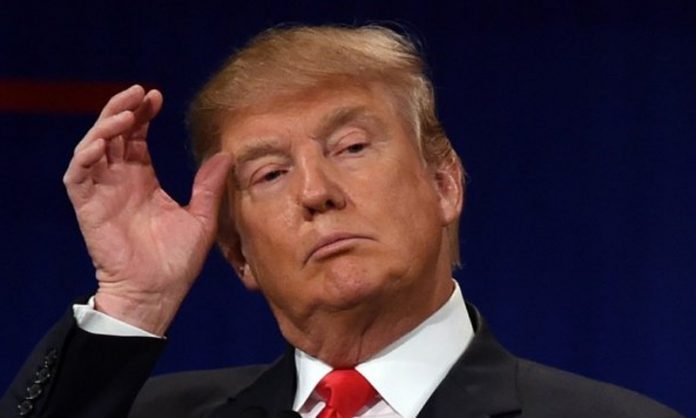President Donald Trump has yet to condemn an attack on Muslim worshippers in London, the latest instance in which he has appeared slower to speak out about violence when Muslims are the victims.
Unlike with other recent attacks targeting civilians, there were no early-morning tweets voicing sympathy for the victims or vowing a renewed fight against violent ideologies. The first White House voice to acknowledge the late Sunday attack was Trump’s daughter, Ivanka, who tweeted that she was “sending love and prayers.” She added: “We must stand united against hatred and extremism in all its ugly forms.”
As president, Trump has taken steps to protect Muslims from violence, including cruise missile strikes against Syria’s military after blaming it for a chemical attack that killed dozens of civilians.
Still, Muslim advocacy groups say they see a stark difference in the haste with which Trump responds when Muslims are the perpetrators of attacks, and not the targets. They see the discrepancy as part of a pattern, given Trump’s harsh campaign rhetoric about Islam and attempts to temporarily ban immigrants from a handful of Muslim-majority countries.
“It’s like pulling teeth to get President Trump to respond to terror attacks on Muslims,” said Ibrahim Hooper of the Council on American-Islamic Relations. “His silence or his delay really sends a negative message to the American Muslim community that their lives and their safety are not as important as the lives and safety of other citizens.”
Scrutiny of Trump’s responses comes amid growing concern about a rise in hate crimes against Muslims in countries that have experienced extremist attacks. In the latest incident, at least nine were injured in Britain late Sunday when a man plowed his vehicle into a crowd outside a mosque. Police there are treating it as a terror attack.
For the United Kingdom, it was only the most recent bout of violence, following three previous attacks in as many months. After two of those incidents — a March attack near Parliament and a June attack on London Bridge — Trump was quick to express solidarity and call for a strong response.
Both attacks were claimed by Daesh, and Trump later drew dismay from British leaders when he repeatedly disparaged London Mayor Sadiq Khan, a Muslim, for his response to the attack.
Trump was visiting the West Bank in May at the time of another attack claimed by IS: a suicide bombing at a concert in Manchester. He quickly condemned the perpetrators as “evil losers” who had murdered “young, beautiful, innocent people, living and enjoying their lives.”
Other U.S. officials and agencies have more consistently condemned violent attacks — regardless of the circumstances. On Monday, State Department spokeswoman Heather Nauert said the U.S. “strongly condemns last night’s attack that appears to have targeted Muslim worshippers in London,” while White House press secretary Sean Spicer told reporters that Trump was being updated by his staff.
“Our thoughts and prayers go out to the victims and their families, and we’ve made it very clear to our British allies that we stand ready to provide any support or assistance,” Spicer said.
In the president’s defense, Trump’s supporters note that after Syrian leader Bashar Assad’s forces were accused of using chemical weapons against Syrians, Trump intervened with unprecedented U.S. strikes to try to stop it from happening again. Under similar circumstance in 2013, President Barack Obama declined to take such a step to protect Muslim lives.
The White House didn’t respond to requests for comment Monday. But Kellyanne Conway, a senior White House adviser, suggested earlier this year it might be a bandwidth issue, noting that Trump “doesn’t tweet about everything.”
“I know he’s sympathetic to any loss of life. It’s completely senseless, and it needs to stop, regardless of who is lodging the attack,” Conway told CNN in February.
In some cases, Trump has voiced support for Muslim victims of attacks days later, or with unusual caveats.
When two men were killed last month in Portland, Oregon, defending two young women who appeared to be Muslim from an anti-Islam tirade, Trump waited three days before calling the attacks “unacceptable” and praising the men who stood up “to hate and intolerance.” He also waited to express condolences to Canada after an attack on a Quebec City mosque.
And when an IS attack this month struck the capital of Iran, a Shiite Muslim country that Trump’s administration sees as a top U.S. foe, the White House said the U.S. grieves for the victims “and for the Iranian people.” But the two-sentence statement then assigned some of the blame to Iran, saying countries “that sponsor terrorism risk falling victim to the evil they promote.”





